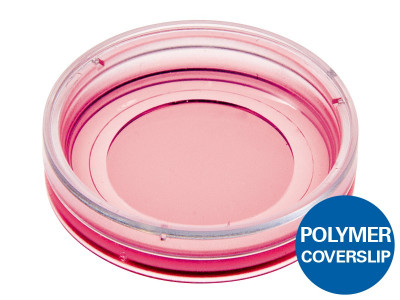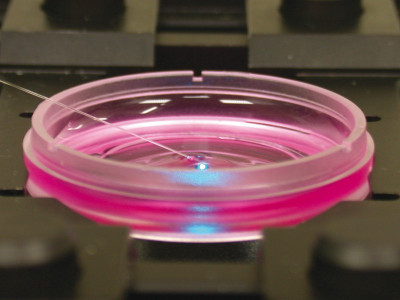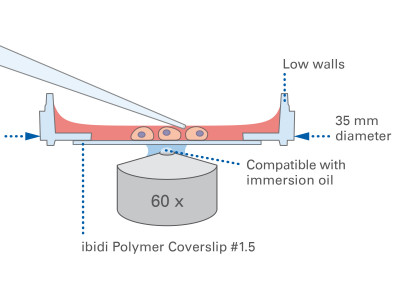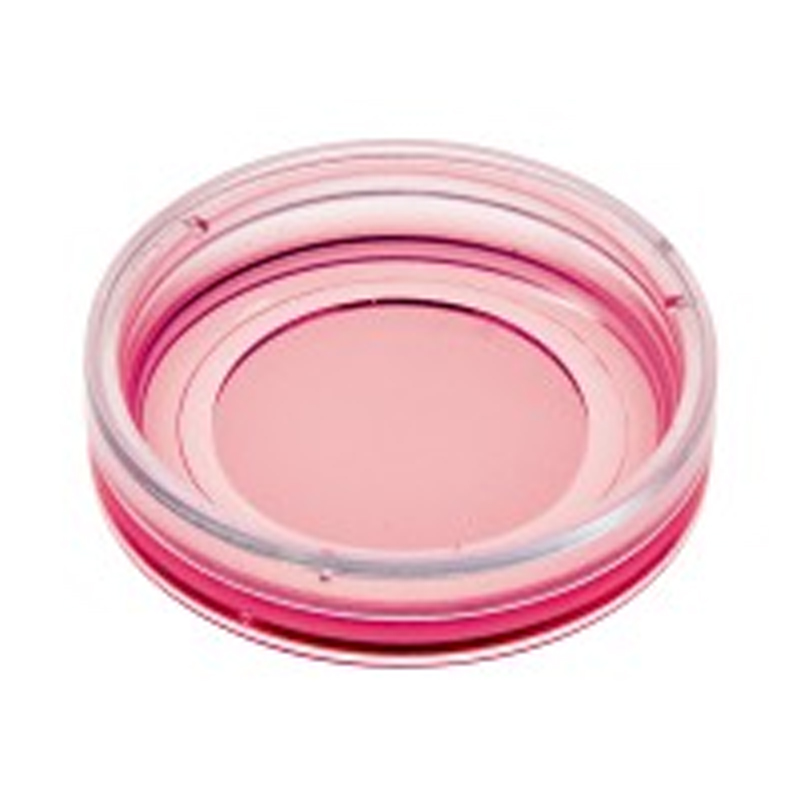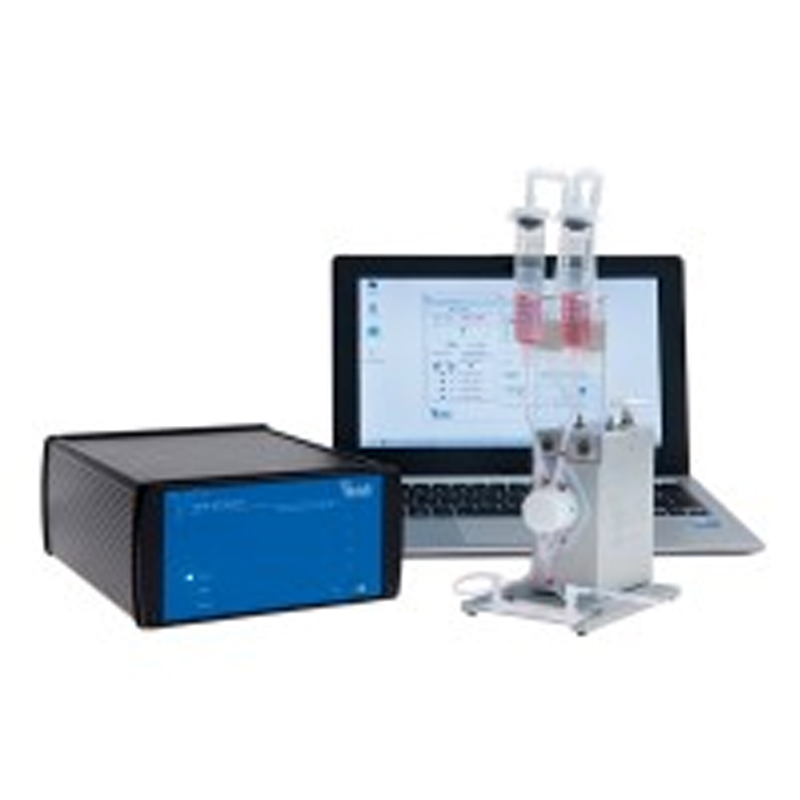Cell manipulation, micromanipulation, and microinjection (e.g., using a micromanipulation pipette, a glass capillary, or a micromanipulator)
Cultivation and high-resolution microscopy of cells
Immunofluorescence staining
Widefield and confocal fluorescence microscopy of living and fixed cells
Live cell imaging over extended time periods
Transfection assays
Differential interference contrast (DIC) when using a DIC Lid
Cell location and counting when using the gridded version
Want to know if you should use a glass or a polymer bottom for your application? Find out here.
Specifications
? μ-Dish | 35 mm |
Volume | 800 μl |
Growth area | 3.5 cm2 |
Coating area using 400 μl | 4.1 cm2 |
? observation area | 21 mm |
Height with / without lid | 9 / 7 mm |
Bottom: ibidi Polymer Coverslip | |
Technical Features
Standard format imaging dish with a 35 mm diameter for tissue culture
Low walls for a large access area during the micromanipulation of cells; also available with high walls with a standard height of 12 mm for easy handling: μ-Dish 35 mm, high
ibiTreat (tissue culture-treated) surface for optimal cell adhesion and cell growth
Lid with locking feature for minimal evaporation
No autofluorescence
Biocompatible polymer material—no glue, no leaking
Also available as μ-Dish 35 mm, low Glass Bottom with a #1.5H Glass Coverslip Bottom, which is specifically suited for TIRF and single-molecule applications
Available with a 500 μm grid: μ-Dish 35 mm, low Grid-500
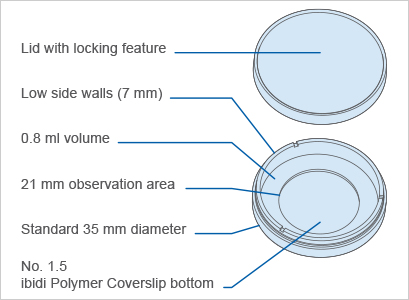
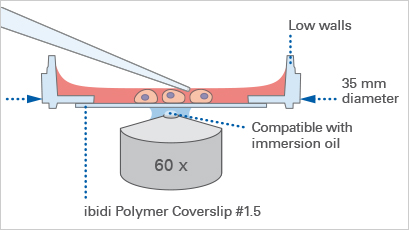
The Principle of the μ-Dish 35 mm, low
Low Walls for Easy Micromanipulation of Cells
The ibidi μ-Dishes with low walls (i.e., μ-Dish 35 mm, low and μ-Dish 35 mm, low Glass Bottom) are perfectly suited for micromanipulation assays, such as intracellular injections, micropipette chemotaxis assays, or tissue treatment and microscopy. Due to the low walls of these μ-Dishes, instrumentation (e.g., electrodes) can be positioned exactly using a micromanipulator. The excellent optical quality makes the ibidi μ-Dishes ideally suited for single-cell handling and high-resolution live cell imaging. For all standard cell culture applications, we also offer the μ-Dish 35 mm, high product family with high walls.
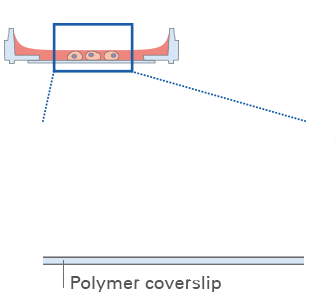
The Coverslip Bottom
The μ-Dish 35 mm, low comes with a thin ibidi Polymer Coverslip Bottom that has the highest optical quality (comparable to glass) and is ideally suitable for high-resolution microscopy. It is also available as μ-Dish 35 mm, low Glass Bottom with a #1.5H Glass Coverslip Bottom for TIRF or single molecule microscopy.
The ibiTreat Surface
ibiTreat (tissue culture-treated) is our most recommended surface modification, because almost all adherent cells grow well on it without the need for any additional coating.
Learn more about the coverslip bottom or the different surfaces of the ibidi chambers here.
Lid with Locking Feature for Minimized Evaporation
All ibidi μ-Dishes are equipped with a special lid-locking feature. The locking position minimizes evaporation and thereby provides excellent conditions for long-term studies in a non-humidified environment. Gas exchange (carbon dioxide or oxygen) during cell culture is maintained thanks to the gas-permeable polymer material of the dish.
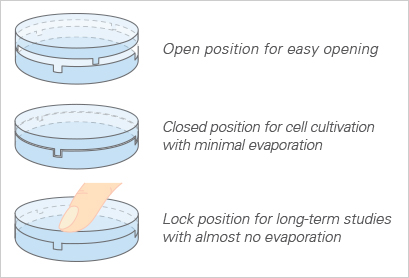
TIP: Use the locking feature if minimal evaporation is required (e.g., outside incubators, non-humidified microscopy stages, etc.).
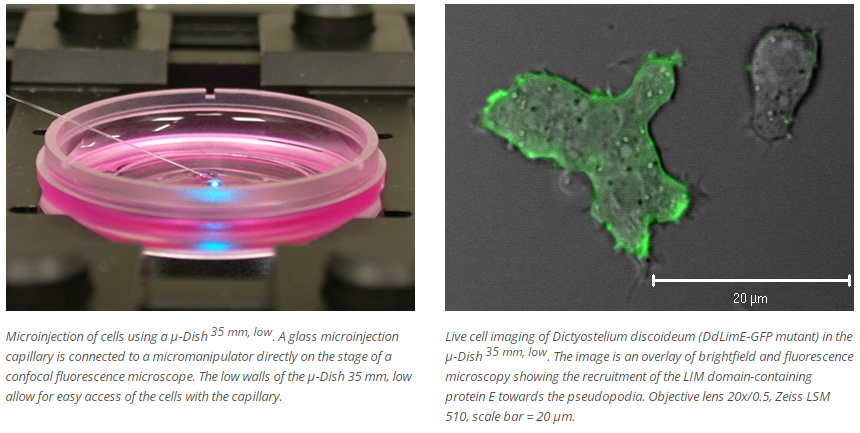
Comparison of the ibidi Dishes 35 mm, low
Please find a detailed comparison of the material specifications, including suitable microscopy applications for the ibidi Polymer Coverslip, the ibidi Glass Bottom, and further materials, here.
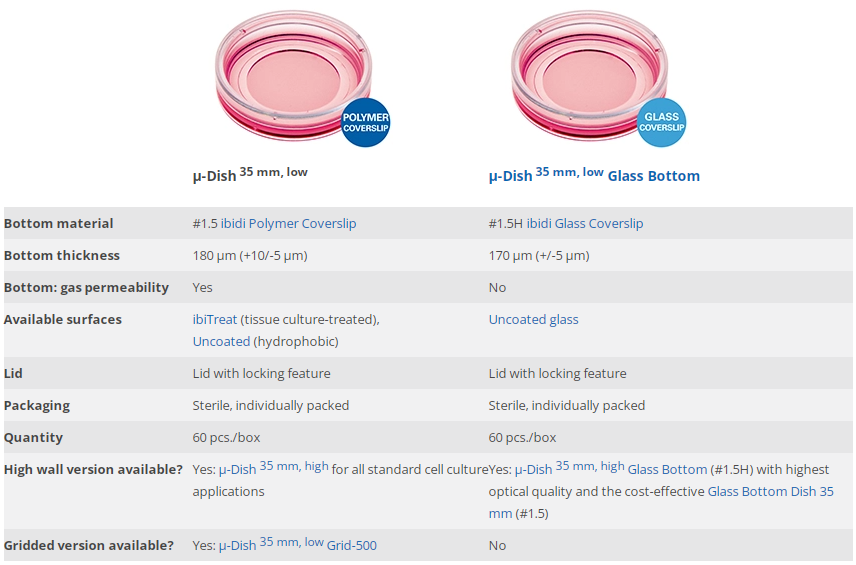
The ibidi μ-Dishes: High Walls vs. Low Walls







